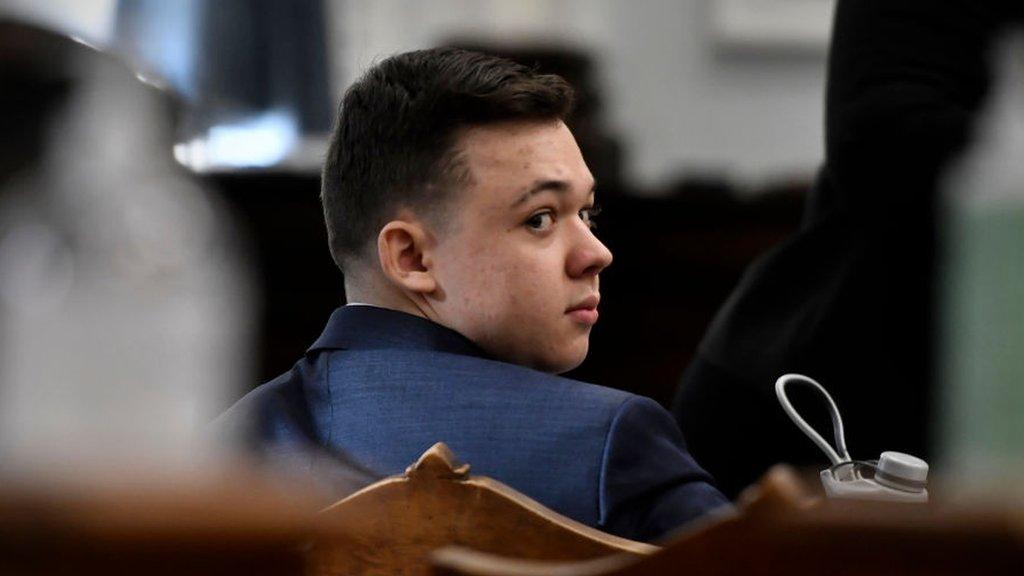Kyle Rittenhouse: Jury to decide fate of US teen gunman
- Published
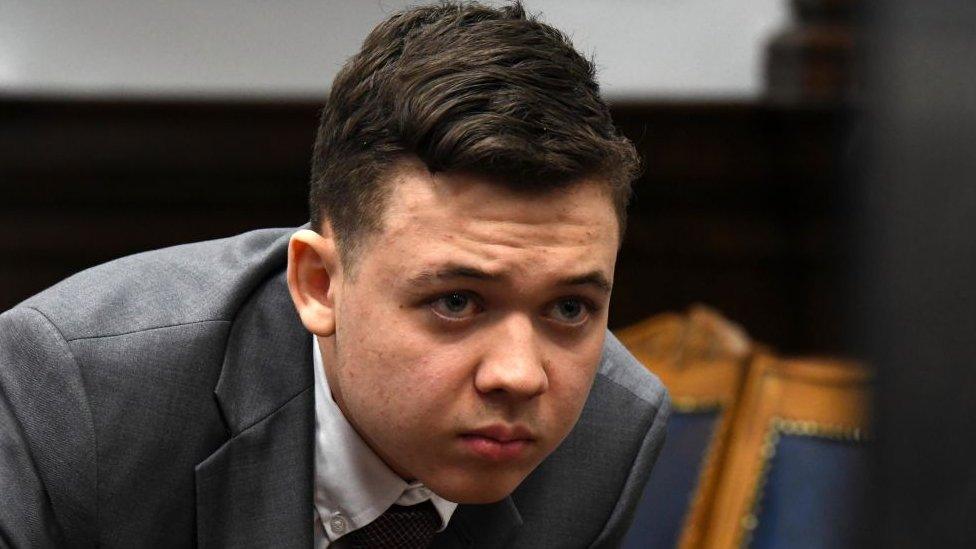
A jury has been sent to deliberate in the case of a teen who shot three men amid civil unrest last year, in one of the most high-profile trials in the US.
Wrapping up, prosecutors said Kyle Rittenhouse walked off like a "hero in a Western" after opening fire on the streets of Kenosha, Wisconsin.
Mr Rittenhouse's lawyer said his client feared his own gun would be used on him after a "crazy person" ambushed him.
The 18-year-old killed two men and injured a third on 25 August 2020.
The Rittenhouse case was instantly politically divisive and its result is being closely watched across the nation.
The defendant is white, as are the three men he shot.
But the shooting happened amid sometimes violent protests that followed the police murder of George Floyd, a black man, in Minneapolis, and the case has been held up on the left as raising questions about racial justice and perceived white privilege.
On the right, the cause celebre is seen as an important test case for gun rights and self-defence.
Ahead of a verdict, 500 National Guard troops have been placed on standby in the Midwestern state.
In a statement, Governor Tony Evers urged people to "respect the community by reconsidering any plans to travel there" in response to the verdict.
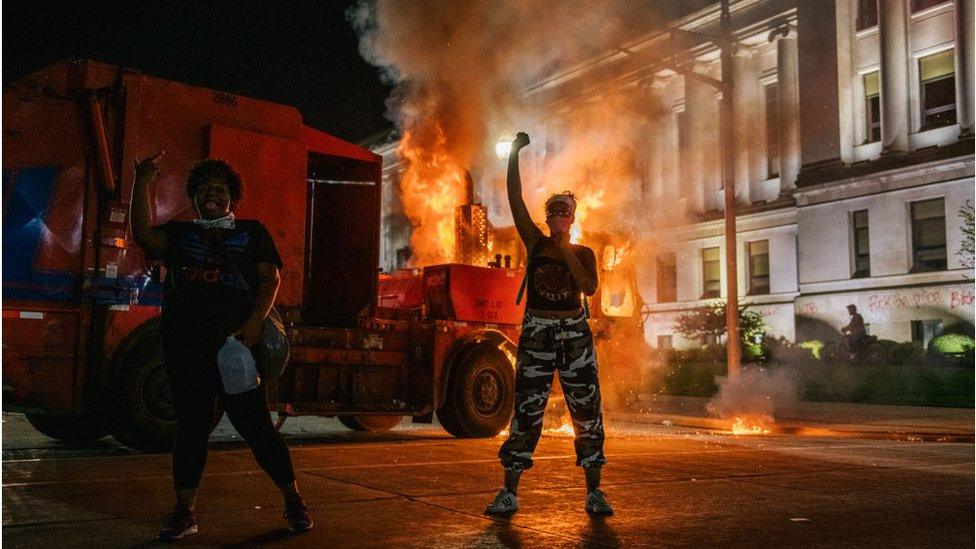
Two nights before Mr Rittenhouse turned up in Kenosha, riots erupted on its streets after police shot Jacob Blake, a black man. Mr Rittenhouse had travelled to the city from his home in Illinois and, armed with a semi-automatic rifle, he said he sought to help protect property from unrest.
Before sending out the jury on Monday evening, Judge Bruce Schroeder instructed them to focus on the facts and to "disregard the claims or opinions of any other person or news media or social networking site".
"You will pay no heed to the opinions of anyone - even the president of the United States or the president before him," he said.
If Mr Rittenhouse is convicted on the most serious charges, he could face life in prison.
Attorneys for Mr Rittenhouse have said he acted in self-defence, but prosecutors allege he came looking for trouble and behaved like a vigilante.
How did the defence wrap up?
Mark Richards, an attorney for Mr Rittenhouse, accused the state of running "a shoddy investigation" that played "fast and loose with the facts" and used "hocus pocus out-of-focus evidence".
"This case is not a game. It is my client's life," he said. "Kyle was a 17 year old trying to help this community. He reacted to people attacking him."
He added "we can take politics out of it, but the district attorney's office is marching forward with this case because they need somebody to be responsible".
Running through testimony from witnesses, Mr Richards argued "there was nothing reckless" about his client's actions and he had the right to be in Kenosha that night.
Gaige Grosskreutz, the third person shot, had previously testified that he and others thought Mr Rittenhouse was an "active shooter", a term mentioned several times by the prosecution in its closing statement.
But Mr Richards rebuked the label as "a buzzword" with "loaded connotations". He said the crowd attacked Mr Rittenhouse not to disarm or chase him away, but because "they wanted to get their licks in".
He also slammed prosecutors' descriptions of Joseph Rosenbaum - the first person to be shot - as "a mouthy little guy" with more bark than bite, instead asserting that Mr Rosenbaum was a violent rioter and "somebody who wasn't on their proper medication".
Mr Rittenhouse was 17 years old when he fired the fatal shots that killed Mr Rosenbaum, 36, and Anthony Huber, 26, and wounded Mr Grosskreutz, 27.
Earlier on Monday, defence attorneys successfully argued that Wisconsin law could be interpreted to allow him to possess the firearm despite being under the age of 18. Judge Schroeder agreed to drop the weapons charge prior to closing arguments.
How did the prosecution wrap up?
Lead prosecutor Thomas Binger told the court on Monday in his closing statement: "You cannot claim self-defence against a danger that you create."
Mr Binger - the assistant district attorney for Kenosha - questioned why Mr Rittenhouse broke curfew in a city he did not live in and "pretended to guard" people and property he was not familiar with.
"Consider whether or not it's reasonable for a criminal to be able to shoot himself out of a crime scene," he said. "If someone comes up to that person and tries to disarm them, do they forfeit their life?"
"He ran around with an AR-15 all night and lied about being an EMT [emergency responder]. Does that suggest to you that he is genuinely there to help?" asked the prosecutor.
Mr Rittenhouse had worked as a first responder cadet prior to the shootings. He testified last week that he provided medical aid to people that day.
Jurors were shown video, sometimes frame by frame, leading up to and after each shooting.
Mr Binger assailed the teen for showing "no regard for human life" and then fleeing the scene "like he was some sort of hero in a Western".
Related topics
- Published19 November 2021
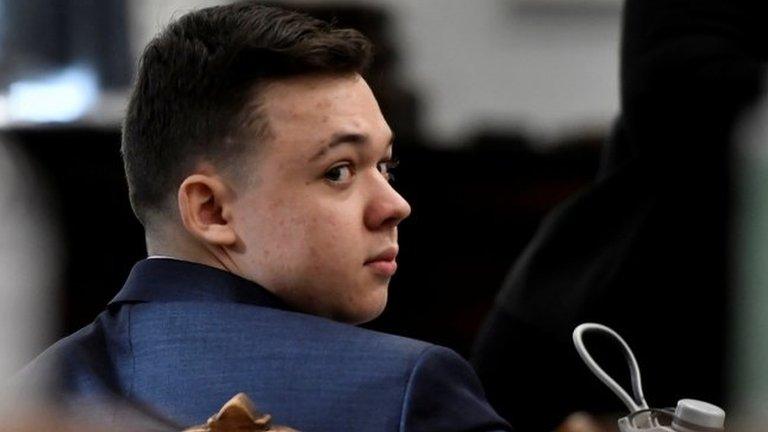
- Published9 November 2021
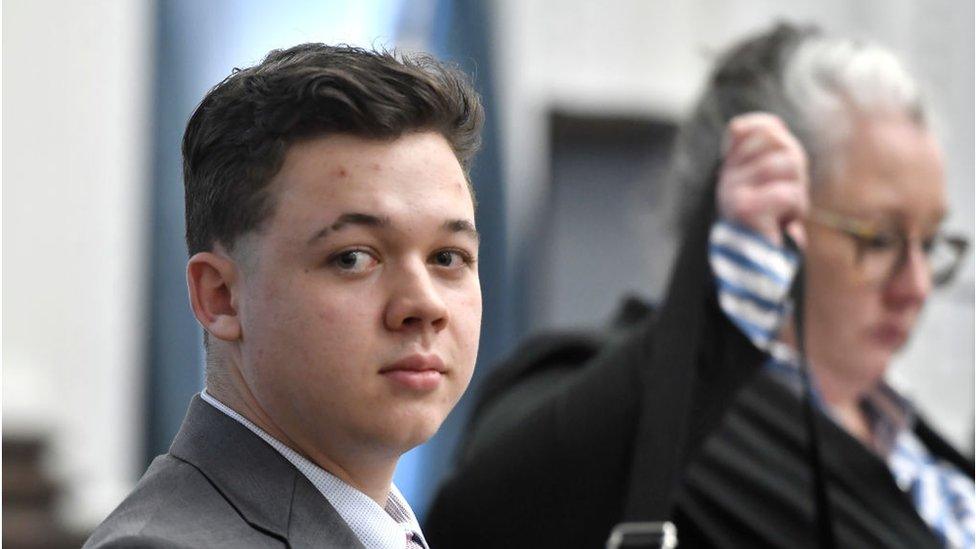
- Published11 November 2021
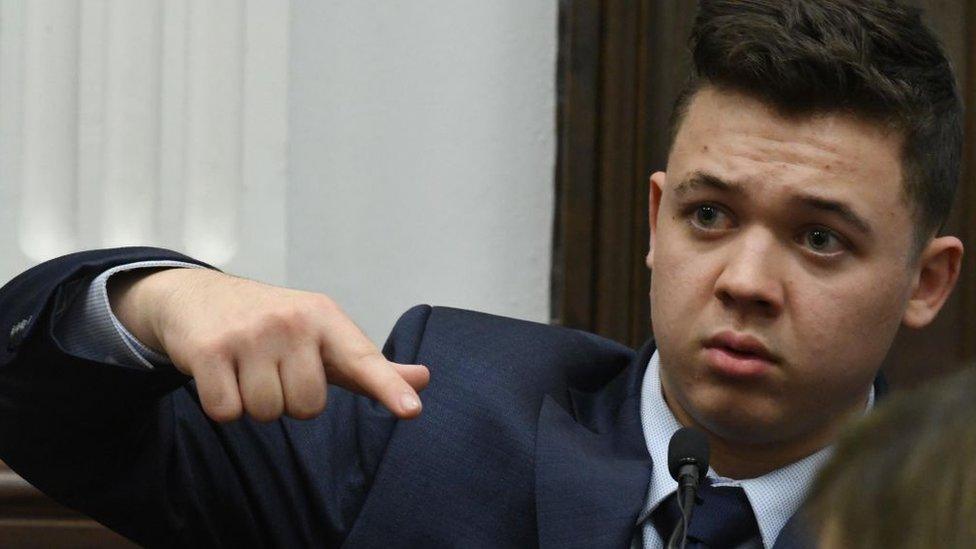
- Published10 November 2021
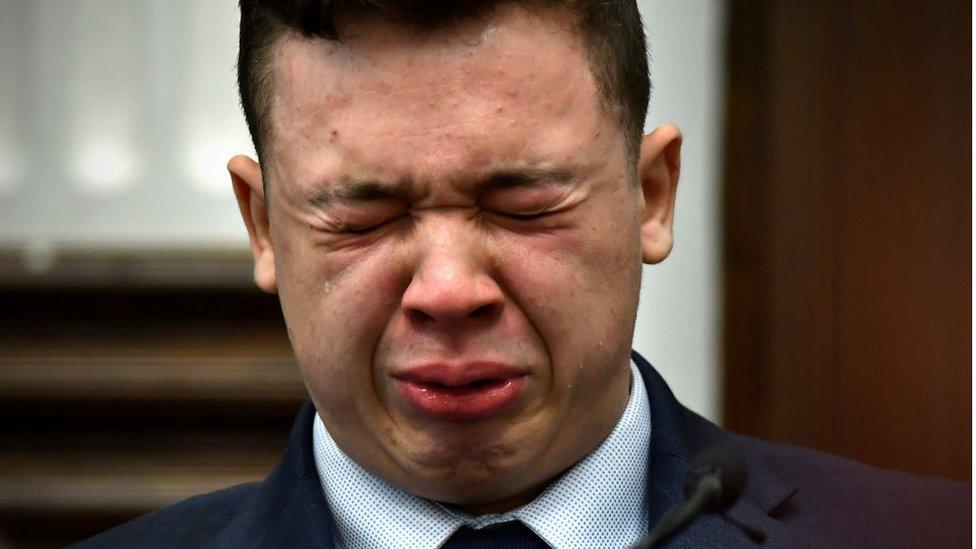
- Published9 November 2021
